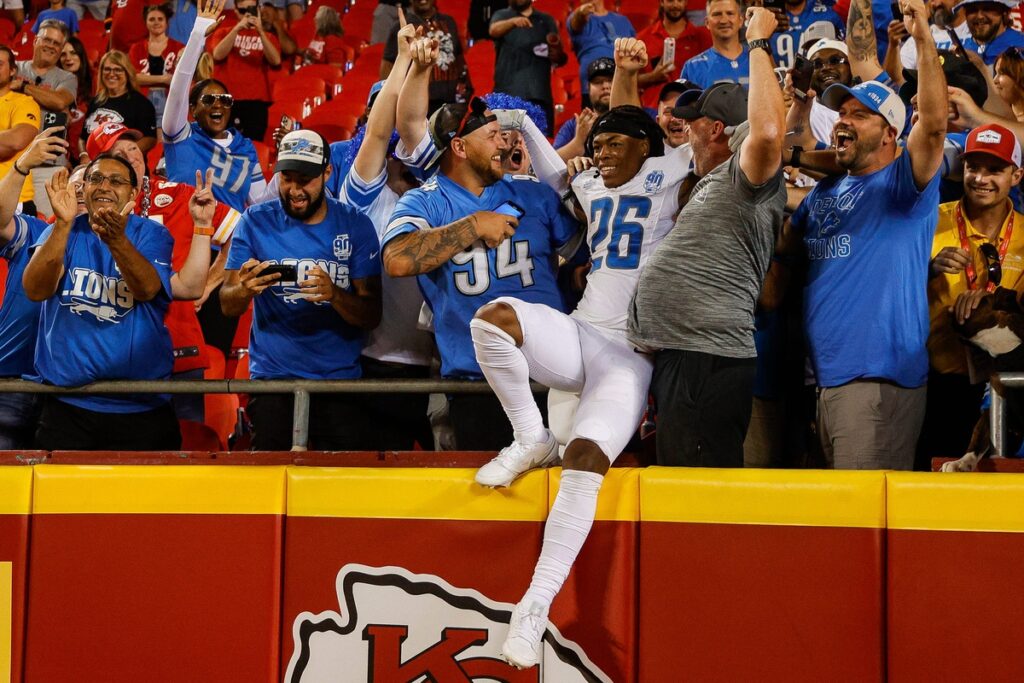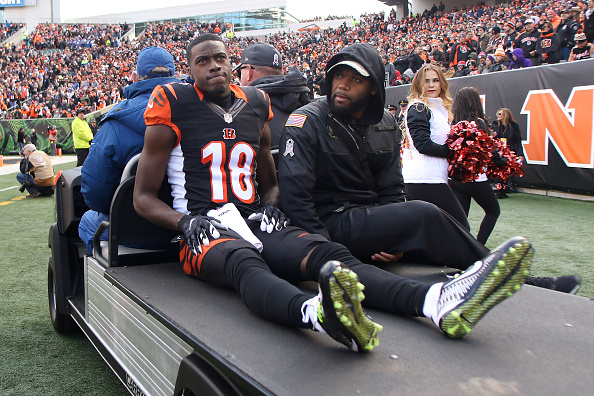The NFL season opener is one of the most anticipated events on the sports calendar. Fans across the country are excited to see their favorite teams finally take the field and begin their quest for the championship. However, while the season opener is exciting, it is often an overrated indicator for the rest of the season. In this article, we will explore the reasons why the season opener is not always a good representation of the team for the rest of the season.
The NFL Season Opener – An Overrated Indicator
The Great Equalizer – Injuries
The Detroit Red Wings claimed their 11th Stanley Cup, while the Boston Celtics solidified their legacy with their 17th NBA championship. In Beijing, the Summer Olympics showcased the remarkable achievements of Michael Phelps, who secured an unprecedented eight gold medals. Christopher Nolan’s masterpiece, “The Dark Knight,” enthralled audiences worldwide and emerged as the highest-grossing film of the year. And who can forget Danica Patrick’s groundbreaking victory as the first woman to conquer a top-level sanctioned open-wheel car racing event?
September 7, 2008. The start of the regular season. The reigning MVP, Tom Brady, was about to face a fate that would send shockwaves throughout the league. On the receiving end of a brutal hit from Chiefs safety Bernard Pollard, Brady’s season was abruptly halted. Tests later confirmed a torn ACL and MCL, crushing the hopes of the Patriots and their fans. It was a devastating blow for a team that had a perfect regular season the year before.
As a fan, I remember watching in horror as the star quarterback of my favorite team went down in the opening game of the season. Injuries can have a significant impact on team performance, and the season opener is not immune to this reality. Not only do teams have to deal with players who are still recovering from previous injuries, but they may also suffer new injuries during the game, changing the state of the team drastically from Week 1.
Despite the team’s tremendous efforts, the Patriots missed the playoffs for the first time since 2002. Although there were instances when the offense struggled without Brady, they still had a significant opportunity to secure a playoff spot until the final game of the season.
Injuries can hit at any time, but they are particularly devastating when they happen early on in the season, setting the tone for the rest of the games. A team may have to rely on a backup player who may not be as effective as the starter or may have to change their game strategy to accommodate the new player.
It is vital to remember that football is a contact sport, and injuries are an inevitable part of the game. A player may be healthy and ready to play in the season opener, but that doesn’t guarantee their continued participation throughout the season. Therefore, relying on the performance of a player or a team in the season opener can be a precarious way to predict future success.
New Players: Adaptation & Potential
New players can breathe new life into a team, but it takes time for them to adjust to playing with each other, the coaching staff, and their team’s systems. The preseason is typically used to evaluate new players, but it can be a different story in the season opener when the stakes are higher and starters play much longer.
Now, let’s go to 2006! A Texas Longhorns’ epic victory over the USC Trojans in the unforgettable 2006 Rose Bowl. Pixar Animation Studios released their seventh feature film, “Cars”, and who could forget the Carolina Hurricanes securing their first-ever Stanley Cup in franchise history?
How about a season opener, which resulted in only 19 points for the New Orleans Saints? That year they went on to be the number five team in the league in points scored. Should that game be regarded as a definitive indicator of their performance for the remainder of the season? We can take a look closer at two new key players. While it is true that Reggie Bush displayed potential during the game, his rookie season was marked by ups and downs. In his debut, Brees faced challenges with a 67.4 QB rating. However, he rebounded and went on to become the first runner-up for league MVP. Additionally, he was honored as a co-recipient of the Walter Payton NFL Man of the Year Award that year with former teammate Ladanian Tomlinson.
Newly recruited players often require sufficient time to develop their skills, gain confidence, and acclimate to the intricacies of the NFL. Consequently, although the season opener can serve as a platform to exhibit new talents, should it carry excessive weight in evaluating a player’s performance for the entire season or a team’s overall success?
Rookie Uncertainties
Rookies are often viewed as a ray of hope for their teams. They might have been chosen early in the draft, suggesting immense potential, or they might have already made a name for themselves in college. However, despite their promise, rookies can be unpredictable in the season opener and some might turn out to be a disappointment.
For instance, consider a highly acclaimed rookie quarterback. He might struggle to adapt to the speed and complexity of the NFL game, resulting in interceptions and fumbles (Zach Wilson). On the other hand, a rookie wide receiver might exhibit remarkable skills and catching ability, instantly making an impact with impressive catches (Randy Moss).
It is this unpredictability that makes the impact of rookies on the season opener, and the season as a whole, so fascinating. While rookies can bring fresh perspectives and energize a team, they also require time to assimilate into the team’s culture and playing style.
The NFL season opener is always eagerly anticipated, signaling the start of the season with excitement and promise. However, it is important to remember that it doesn’t always provide a reliable indication of a team’s ability to succeed throughout the season. Factors such as injuries, new players, the progress or regress of opponents, scheme changes, and rookies can all influence a team’s performance during the season and should all be considered when evaluating a team’s potential.
Main Image: Junfu Han / USA TODAY NETWORK



